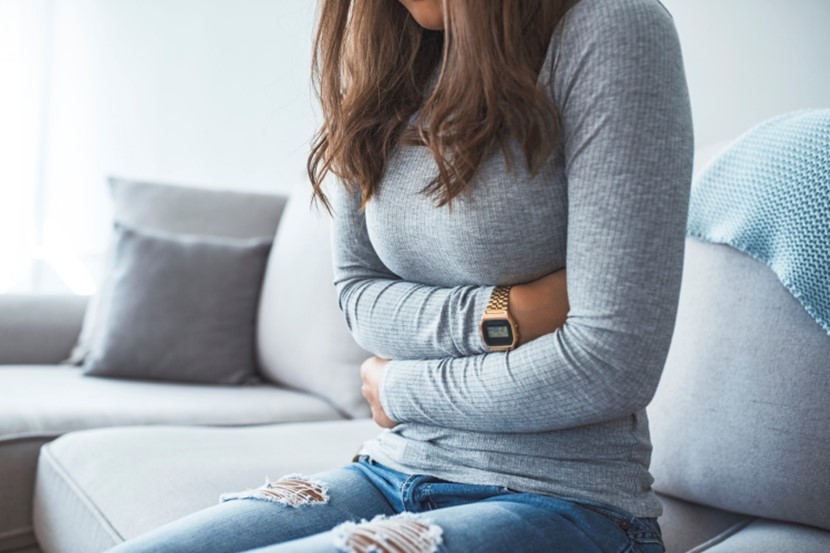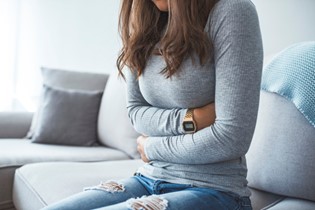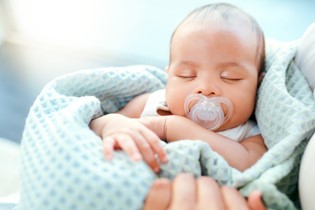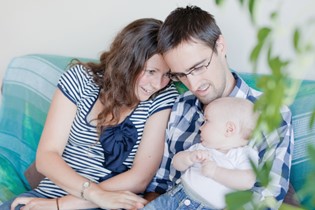Ectopic pregnancy explained

OHbaby! expert obstetrician Martin Sowter explains ectopic pregnancies - when baby is not growing in the right place.
Just over 1% of pregnancies are ectopic, that is a pregnancy that happens outside the womb. Each year about 1000 New Zealand women are suspected of having an ectopic pregnancy and about half of them eventually hear the bad news that the baby is not growing in the right place.
What is an ectopic pregnancy?
Over 95% of ectopic pregnancies will be in one of the fallopian tubes. Very occasionally they can be in the wall of the uterus where the fallopian tube enters the womb, attached to the ovary, or even within the cervix.
Most studies have shown an increase in the number of women affected by ectopic pregnancy, associated with a rise in sexually transmitted infections, particularly chlamydia. The infection is likely to have damaged the delicate mechanisms in the fallopian tube that allow an egg to pass down from the ovary through the fallopian tube where it is fertilised and on into the womb. But for many others, no cause is ever found.
What are the signs?
For most women an ectopic pregnancy is suspected when they have bleeding or pain on one side in early pregnancy. An ultrasound scan and blood test should then be arranged. Sometimes a pregnancy or area of possible blood clot will be seen outside the womb in the area of the fallopian tube, but in very early pregnancy it may not be possible to see any sign of pregnancy at all.
In that situation measuring pregnancy hormone (HCG) levels is helpful. A high hormone level with no sign of a pregnancy inside the uterus makes an ectopic pregnancy very likely.
Low levels suggest it’s still too early to see a pregnancy, even if it’s in the right place, and the tests need to be repeated.
A generation ago many women would not have been diagnosed until their symptoms had been present for some time and this delay meant it was more common for women to become suddenly unwell with the loss of a lot of blood from internal bleeding as their ectopic pregnancy ruptured. Although now rare in developed countries, worldwide, ectopic pregnancy is one of the more common causes of death in pregnancy.
What is the treatment?
Some women have an open operation through an incision across the bottom of their abdomen, particularly if there are concerns about a lot of blood loss. But most women now have keyhole surgery through a couple of small incisions.
About a quarter of affected women are also suitable for treatment with a drug called methotrexate. This usually means a single injection which stops the ectopic pregnancy tissue growing. Over a few weeks the pregnancy tissue is absorbed by the body and pregnancy hormone levels gradually return to normal.
How will my fertility be affected?
About two thirds of women with an ectopic pregnancy conceive again fairly easily but there is a significant chance of fertility problems after either surgery or methotrexate treatment.
In most cases where women are having surgery for an ectopic pregnancy the fallopian tube affected will be removed. But encouragingly, women with an ectopic pregnancy who still have one fallopian tube left after surgery seem to be just as likely to get pregnant as women who have their tube saved.
If you’ve had one ectopic pregnancy there’s a 10-15% chance of having another. Unfortunately if both fallopian tubes are lost then IVF and test tube baby treatment will be needed.
Future developments
Research is under way that will hopefully result in a blood test to identify protein levels indicating whether the pregnancy has implanted in the right place.
But the most important future development for reducing the number of ectopic pregnancies will be educating young people about the effects of sexually transmitted infections (STI) on fertility and more regular screening for chlamydia and other infections.
However with about 6000 STI cases a year being notified to the Ministry of Health (and several times that number probably not being reported), we have a long way to go before ectopic pregnancy becomes less common.
Martin Sowter (BSc MB ChB MD FRCOG FRANZCOG) is a specialist at Auckland City Hospital in the fertility and menstrual disorders clinics and also works privately with the specialist team at The Auckland Obstetric Centre. He is married to Alison, an eye surgeon, and has two daughters.

AS FEATURED IN ISSUE 21 OF OHbaby! MAGAZINE. CHECK OUT OTHER ARTICLES IN THIS ISSUE BELOW

















